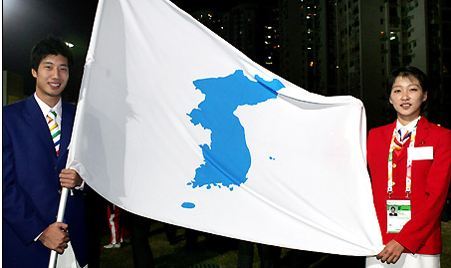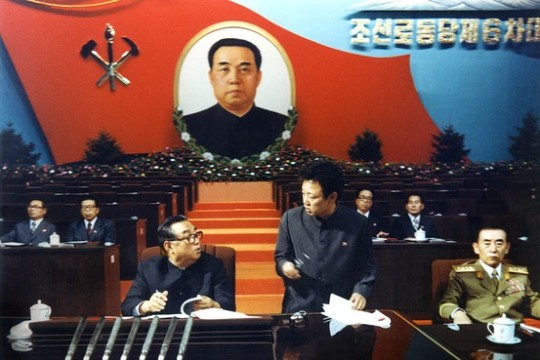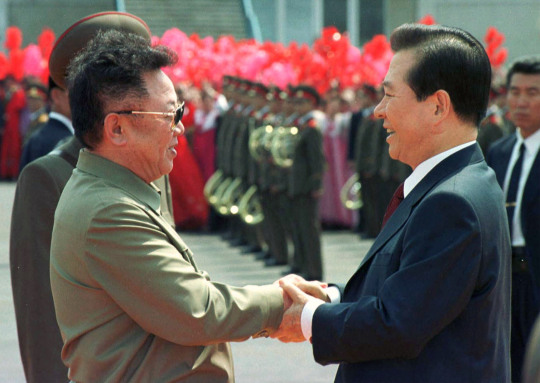#korea is one
Dear Mr.& Mrs related to International Federation of Red Cross,
I was born in North Korea, Democratic People’s Republic of Korea (DPRK). And I grew up and was educated in the North. Until 5 years ago that I had been living a happy life, married. But now I live in South Korea separated from my family as one of North Korean defectors in the capitalistic South Korea, completely different from North Korea. I am Kim, Lyunhee (Kim Ryon Hui) and my life here is harsh and miserable.
Against my will, I was separated with my children, parents and sisters. I have lived in South Korea for 4 long years in this unfamiliar place, hoping to see my family again. But I can’t stay here any longer and I can’t stand the excruciating suffering any more. I am writing this to tell the International Federation of Red Cross under UN, that my wish is to come back to my family. I hope my earnest plea will be answered.
In June 2011, I had left my hometown of Pyeongyang to China, with my DPRK passport, to get a treatment for my chronic illness, and one of my cousins lived in China. During my stay at my cousin’s place, I was told that South Korea is a rich nation, and a few months of work in the South would get me a fortune. Believing what I was told I decided to come to South Korea hoping to earn my medical expenses. However, I was fooled by brokers. They gave me wrong and deceiving information.
Arriving in South Korea, from the very first day of the education programs for North Korean defectors, I told over and over the National Intelligence Service that I was fooled by brokers and I had no intention to defect. I consistently and strongly raised my demand to be sent back to my hometown telling that I was not meant to become a defector and just a victim of greedy brokers. I argued, pleaded, begged, and even went on a hunger strike. However, the South Korea government has rejected my plea of going back to North Korea. Even more, they have refused to issue a passport to me over 4 years up until now, saying that I might flee. This is a sheer violation of basic human rights and universal rights.
I even made several attempts to stow away and get a fake passport to go to North Korea and reunite with my parents and daughter. But each time my dreams of going back home was shattered in pieces. I admit that I was wrong to violate law and order of the South, but I did that because I had to be back to my family.
Ignorant of South Korean laws, I came up with a very bad and foolish idea that if I become a spy, I might be deported to North by the international law, so I enlisted 17 North Korean defectors and their name and address in my mobile phone and reported to the police that I collected secret information for North Korea. In the end, I was convicted of being a North Korean spy and had to serve a jail term, which won’t help me meet my family again in the North.
My family was separated by wrong national policy and my life has been gradually demolishing to complete ruins. Why do I have to live in such misery and pain, not being able to see my parents and daughter again. My heart is tearing apart.
I believe it’s more than natural and a basic human right that a person wishes to live with his/her family, and anything that prevents it is inhumane, anti-human rights, and anti-democratic. To me, freedom and prosperity, no matter how tempting, is always less than my family and home.
If you believe in human rights and if justice and democracy do exist, please help me go back to my family. I implore wholeheartedly the International Red Cross to hear my plea.
Sep. 2015.
Wishing to reunite with my family in North Korea
by Kim, Lyeunhee 김련희

Kim Ryon Hui looking into her homeland at the DMZ

Kim Ryon Hui‘s husband Ri Gum Ryong and her 21-year-old daughter Ri Gyon Gum in the north
“Why? Why can’t she come back, why do we have to go through such suffering? Why do they drag her like this, despite how she says she wants to go back, why not let her go? She has her family, husband and daughter in her country, a daughter who misses her mother, a husband who misses his wife. Do they not have heart and blood?”
Says daughter Ri Gyon Gum when interviewed.
“To my wife in South Korea, don’t forget here you have parents, a husband and daughter, and a socialist nation.
Keep on fighting until the end.
My wife is fighting until the end right now, my whole family, my whole nation. We will all get together so that she can come back. Never stop the fighting.”
Says husband Ri Gum Ryong when interviewed by the CNN
Facebook

The reunion of separated families and relatives took place at Mt. Kumgang Resort and a football match of workers of the north and the south for reunification will be held in Pyongyang a few days later.
This is a fruition brought about by the sincere efforts made by the DPRK for the implementation of the north-south agreement in the wake of the high-level urgent contact and its warm patriotism and the firm will of the DPRK to give momentum to the atmosphere of improving the relations through dialogue and cooperation in the spirit of By Our Nation Itself.
Independent reunification and prosperity common to the nation would be unthinkable without dialogue, cooperation, reconciliation and unity of the north and the south.
The fundamental purpose of improving the north-south relations is to independently solve the issue of the destiny of the nation.
In order to improve the north-south relations, it is necessary to wipe out misunderstanding and mistrust, respect and trust the dialogue partner and get reconciled and seek cooperation on the basis of common points while shelving differences.
The fundamental stand and attitude to be maintained for improving the north-south relations are the spirit of By Our Nation Itself.
The June 15 era of reunification had already proved what an excellent product was brought about by the north-south dialogue and cooperation in the spirit of By Our Nation Itself.
Useless are dialogue and contacts pursuing confrontation of social systems while shunning the desire of the fellow countrymen and the requirements of the times.
The north-south relations can never be improved as long as the south Korean authorities pursue “unification of social systems” with the backing of outsiders.
Invariable is the principled stand of the DPRK to pursue reconciliation, unity and cooperation from the stand of By Our Nation Itself by putting the interests
Choe Chol Sun, Rodong Sinmun

Some days ago, the south Korean chief executive invited a German delegation to Chongwadae to talk volumes about the “urgent need for denuclearization of the north.” She solicited “cooperation in forcing the north to dismantle its nuclear weapons and improve human rights.” Letting loose sophism about the course of the unification of Germany, she begged for support for south Korea’s efforts to “garner support”for“unification”from the neighboring countries.
Her utterances is a revelation of anachronistic ambition for “achieving unification through absorption” and a politically-motivated provocation against the dialogue partner.
No matter what rhetoric she may let loose, it will only lay bare the despicable true colors as a wicked trickster engrossed in hatching plots and telling lies.
The reunification of Korea has not been achieved not due to the lack of support from someone but due to the confrontation hysteria of the south Korean authorities as they are getting frantic with war moves and smear campaign against the compatriots in the north.
The inter-Korean relations are deteriorating hour by hour. So, now is the time for the north and the south to be careful about words and deeds.
There are not a few examples in the history of complicated inter-Korean relations in which hard-won opportunity of improving the relations was scuppered due to the reckless confrontation racket.
If the south Korean authorities persist in the anti-DPRK confrontation, the north-south agreement reached with much effort will be reduced to a dead paper overnight and the inter-Korean relations will again undergo a vicious cycle of serious catastrophe.
The chief executive of south Korea had better behave herself, bearing in mind that the inter-Korean relations are now at crucial crossroads.
Rodong Sinmun, Sim Chol Yong

Young Koreans from north and south are holding the banner of reunification during the Summer Olympics in Sydney 2000.
Founding DFRK is peaceful reunification of Korea
PresidentKim Il Sung put forward the proposal for founding the Democratic Federal Republic of Koryo at the Sixth Congress of the Workers’ Party of Korea on October 10 1980.
This country name contains “Koryo”, well known to the world as the first unified state in Korean history, and reflects the common political idea of the north and south aspiring to democracy. The gist of the proposal is to reunify the country by founding a federal republic with a national unified government on condition that the north and the south recognize and tolerate each other’s ideas and social systems and they exercise regional autonomy with equal rights and duties.
The proposal for reunifying Korea by the federation formula, which is based on one nation, one state, two systems and two governments, is unprecedented in history.
Generally, a federal system is for two or more states, or regional governments or autonomous provinces of one country, to join together into a sovereign state with common interests. Such federal states are mostly based on a single social system. In some other federations, the countries or provinces forming them have histories and cultures peculiar to them and so there may be difference among them in language and way of life.

Kim Il Sung andKim Jong Il at the Sixth Party Congress in October 1980
The proposed DFRK is a federation between different social systems based on interests common to the nation, not an alliance between the same social systems based on class interests. This federal formula enables the homogeneous Korean nation with a time-honoured history to establish a unified state and form under it two governments in the north and the south with different ideologies and social systems, thereby empowering them to exercise local autonomy. It is also an association of one nation, or all the members of the nation, though it is based on the principle of leaving different ideologies and social systems intact. Therefore, it is also different from other federal states in that it represents and champions the demands and interests common to the nation, not those of a particular class or social stratum. Consequently, the proposal is a rational and fair reunification plan in the light of the interests and commonness of the north and the south and a patriotic reunification plan that gives priority to the common interest and commonness of the Korean nation and the desire of the nationals for the country’s reunification.
In the June 15 2000 Joint Declaration published at the historic inter-Korean summit in Pyongyang both sides recognized that there is a similarity between low-level federation of the north and commonwealth system of the south, which shows that the DFRK proposal is a fair and aboveboard reunification initiative acceptable to all.
Different ideologies and systems have existed in the north and the south for 70 years. Given that neither of them would give up their long-standing ideologies and systems, persistence in a unification formula of one side absorbing the other will only generate disagreement and finally lead to the calamity of armed clash.
But if the country is reunified by the federation formula Korea will be an independent and neutral reunified country, which will go a long way towards peace and security in Northeast Asia and beyond.
The proposal for founding the federal republic is the best way to reunify the country which makes it possible to put the Korean nation on the world map as a great nation that has achieved overall unity and a thriving independent state.

Great Leader Kim Jong Il greets President Kim Dae Jung of south Korea in Pyongyang, at the historic summit of June 15 2000.
Kim Chun Song, The Pyongyang Times
